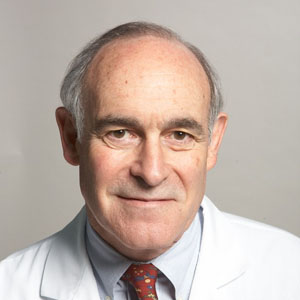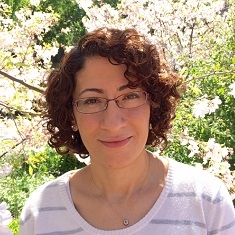Related Research Articles
Pathophysiology – a convergence of pathology with physiology – is the study of the disordered physiological processes that cause, result from, or are otherwise associated with a disease or injury. Pathology is the medical discipline that describes conditions typically observed during a disease state, whereas physiology is the biological discipline that describes processes or mechanisms operating within an organism. Pathology describes the abnormal or undesired condition, whereas pathophysiology seeks to explain the functional changes that are occurring within an individual due to a disease or pathologic state.

The Medical Research Council (MRC) is responsible for co-coordinating and funding medical research in the United Kingdom. It is part of United Kingdom Research and Innovation (UKRI), which came into operation 1 April 2018, and brings together the UK's seven research councils, Innovate UK and Research England. UK Research and Innovation is answerable to, although politically independent from, the Department for Business, Energy and Industrial Strategy.
JDRF is a nonprofit 501(c)(3) organization that funds type 1 diabetes (T1D) research, provides a broad array of community and activist services to the T1D population and actively advocates for regulation favorable to medical research and approval of new and improved treatment modalities. It was initially founded as the JDF, the Juvenile Diabetes Foundation. It later changed its name to the Juvenile Diabetes Research Foundation and is now known as JDRF.
The Kolling Institute is located in the grounds of the Royal North Shore Hospital in St Leonards, Sydney Australia. The institute founded in 1920 is the oldest medical research institute in New South Wales.
Automated insulin delivery systems are automated systems designed to assist people with diabetes, primarily type 1, by automatically adjusting insulin delivery to help them control their blood glucose levels. Currently available systems can only deliver a single hormone—insulin. Other systems currently in development aim to improve on current systems by adding one or more additional hormones that can be delivered as needed, providing something closer to the endocrine functionality of a healthy pancreas.
Thomas James Hudson, O.C., M.D., is a Canadian genome scientist noted for his leading role in the generation of physical maps of the human and mouse genomes and also his role in the International HapMap Project whose goal is to develop a haplotype map of the human genome.
Linda M. Brzustowicz is a professor of genetics at Rutgers University and a member of the Motif BioSciences Scientific Advisory Board, whose main purpose is to develop technology that will benefit all laboratories using "biosamples," or samples of blood, DNA, stem cells, etc. that advance the field of human genetics. She has produced notable research in human gene functions in both the pathologic and normal states, contributing to the understanding of genetics of schizophrenia, autism, and specific language impairment (SLI). Because the diagnosed cases of childhood autism have experienced an unprecedented spike in recent times, causing speculation about the debatable "autism epidemic," such research is invaluable.
The Dr. Paul Janssen Award for Biomedical Research is given annually by Johnson & Johnson to honor the work of an active scientist in academia, industry or a scientific institute in the field of biomedical research. It was established in 2004 and perpetuates the memory of Paul Janssen, the founder of Janssen Pharmaceutica, a Johnson & Johnson subsidiary.

Robert J. Desnick, Ph.D., M.D., D.Sc. (Hon) is a human geneticist whose basic and translational research accomplishments include significant discoveries in genomics, pharmacogenetics, gene therapy, personalized medicine, and the treatment of genetic diseases. His translational research has led to the development of enzyme replacement therapy for Fabry disease, Niemann–Pick disease type B, and RNA Interference Therapy for the Acute Hepatic Porphyrias. He was the co-founder of Amicus Therapeutics, a biopharmaceutical company developing pharmacologic chaperone therapies, and served as the Chairman of the Scientific Advisory Committees (SAC) of Synageva BioPharma and Kiniksa Pharmaceuticals. The enzyme therapy developed in his laboratory and licensed to Genzyme as Fabrazyme, along with Cerazyme for Gaucher disease, helped build the rare disease company Genzyme, which has spawned more CEOs than any other company in history following its 2011 sale to Sanofi for $20.1 billion.
John Andrew Todd FMedSci FRS is Professor of Precision Medicine at the University of Oxford, director of the Wellcome Center for Human Genetics and the JDRF/Wellcome Trust Diabetes and Inflammation Laboratory, in addition to Jeffrey Cheah Fellow in Medicine at Brasenose College. He works in collaboration with David Clayton and Linda Wicker to examine the molecular basis of type 1 diabetes.
Hugh O'Neill McDevitt ForMemRS was an immunologist and Professor of Microbiology and Immunology at Stanford University School of Medicine.

Mark Atkinson is a medical researcher best known for his contributions to research seeking to predict, prevent, and cure type 1 diabetes. He is the author of over 600 publications and is one of the world's most cited diabetes researchers.
The Centre for Molecular Medicine and Therapeutics (CMMT) is part of the University of British Columbia's Faculty of Medicine. The Centre is located at the British Columbia Children's Hospital Research Institute (BCCHR) in Vancouver, British Columbia, Canada. Research at CMMT is focused on discovering genetic susceptibility to illnesses such as Huntington Disease, Type 2 diabetes and bipolar disorder.
Sir Bruce Anthony John Ponder FMedSci FRS is an English geneticist and cancer researcher. He is Emeritus Professor of Oncology at the University of Cambridge and former director of the Cancer Research UK Cambridge Institute.

Sir Stephen Patrick O'Rahilly is an Irish-British physician and scientist known for his research into the molecular pathogenesis of human obesity, insulin resistance and related metabolic and endocrine disorders.

Yusuke Nakamura is a Japanese prominent geneticist and cancer researcher best known for developing Genome-Wide Association Study (GWAS). He is one of the world's pioneers in applying genetic variations and whole genome sequencing, leading the research field of personalized medicine.

Josephine Forbes is an Australian scientist specialising in the study of glycation and diabetes. She has been studying diabetes since 1999 and has worked at Royal Children's Hospital, University of Melbourne and Baker Heart and Diabetes Institute in Melbourne Australia. Since 2012 she has led the Glycation and Diabetes team at Mater Research which is a world-class medical research institute based at South Brisbane, and part of the Mater Group. Josephine is program leader for Mater's Chronic Disease Biology and Care theme, building greater understanding of the biological basis of a broad range of chronic diseases, and developing preventative strategies and innovative treatments to improve patient outcomes. Josephine and her team focus on how advanced glycation contributes to the pathogenesis of diabetes and its complications such as kidney disease.
Charis Eng, M.D., Ph.D., is a Singapore-born physician-scientist and geneticist at the Cleveland Clinic, notable for identifying the PTEN gene. She is the Chairwoman and founding Director of the Genomic Medicine Institute of the Cleveland Clinic, founding Director and attending clinical cancer geneticist of the institute’s clinical component, the Center for Personalized Genetic Healthcare, and Professor and Vice Chairwoman of the Department of Genetics and Genome Sciences at Case Western Reserve University School of Medicine.
Georgia Mae Dunston is a professor of human immunogenetics at Howard University and founding director of the National Human Genome Center at Howard University.

Hatice Efsun Arda is a Turkish developmental and systems biologist researching cell lineages that give rise to human pancreas using single cell sequencing. She is a Stadtman principal investigator and head of the developmental genomics group at the National Cancer Institute.
References
- ↑ "JDRF/WT Diabetes and Inflammation Laboratory: Homepage". Archived from the original on 2011-07-28. Retrieved 2011-07-29.